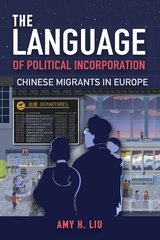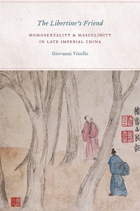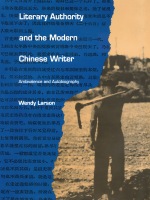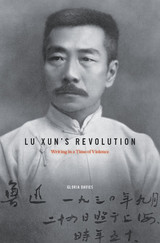7 start with L start with L

In this groundbreaking study, The Language of Political Incorporation, Amy Liu focuses on Chinese migrants in Central-Eastern Europe and their varying levels of political incorporation in the local community. She examines the linguistic diversity of migrant networks, finding institutional trust and civic engagement depend not on national identity, but on the network’s linguistic diversity—namely, whether the operating language is a migrant’s mother tongue or a lingua franca.
The Language of Political Incorporation uses original survey data to assess when the Chinese engage positively with the authorities and when they become civic minded. The results are surprising. In Hungary, the Chinese community has experienced high levels of political incorporation in part because they have not been targeted by anti-immigrant rhetoric and policies. In contrast, migrants in Romania sought the assistance of the Chinese embassy to fight an effort to collect back taxes.
Liu also compares the Chinese experiences in Central-Eastern Europe with those of Muslims in the region, as well as how the Chinese are treated in Western Europe. Additionally, she considers how the local communities perceive the Chinese. The Language of Political Incorporation concludes by offering best practices for how governments can help migrants become more trusting of—and have greater involvement with—locals in their host countries. Ultimately, Liu demonstrates the importance of linguistic networks for the incorporation of immigrants.

Delving into three hundred years of Chinese literature, from the mid-sixteenth century to the mid-nineteenth, The Libertine’s Friend uncovers the complex and fascinating history of male homosexual and homosocial relations in the late imperial era. Drawing particularly on overlooked works of pornographic fiction, Giovanni Vitiello offers a frank exploration of the importance of same-sex love and eroticism to the evolution of masculinity in China.
Vitiello’s story unfolds chronologically, beginning with the earliest sources on homoeroticism in pre-imperial China and concluding with a look at developments in the twentieth century. Along the way, he identifies a number of recurring characters—for example, the libertine scholar, the chivalric hero, and the lustful monk—and sheds light on a set of key issues, including the social and legal boundaries that regulated sex between men, the rise of male prostitution, and the aesthetics of male beauty. Drawing on this trove of material, Vitiello presents a historical outline of changing notions of male homosexuality in China, revealing the integral part that same-sex desire has played in its culture.


Larson focuses on the most famous writers associated with the May Fourth Movement, a group most active in the 1920s and 1930s, and their fundamental ambivalence about writing. She analyzes how their writing paradoxically characterized textual labor as passive, negative, and inferior to material labor and the more physical political work of social progress, and she describes the ways they used textual means to devalue literary labor.
The impact of China’s increasing contact with the West—particularly the ways in which Western notions of “individualism” and “democracy” influenced Chinese ideologies of self and work—is considered. Larson also studies the changes in China’s social structure, notably those linked to the abolition in 1905 of the educational exam system, which subsequently broke the link between the mastery of certain texts and the attainment of political power, further denigrating the cultural role of the writer.


Widely recognized as modern China’s preeminent man of letters, Lu Xun (1881–1936) is revered as the voice of a nation’s conscience, a writer comparable to Shakespeare and Tolstoy in stature and influence. Gloria Davies’s portrait now gives readers a better sense of this influential author by situating the man Mao Zedong hailed as “the sage of modern China” in his turbulent time and place.
In Davies’s vivid rendering, we encounter a writer passionately engaged with the heady arguments and intrigues of a country on the eve of revolution. She traces political tensions in Lu Xun’s works which reflect the larger conflict in modern Chinese thought between egalitarian and authoritarian impulses. During the last phase of Lu Xun’s career, the so-called “years on the left,” we see how fiercely he defended a literature in which the people would speak for themselves, and we come to understand why Lu Xun continues to inspire the debates shaping China today.
Although Lu Xun was never a Communist, his legacy was fully enlisted to support the Party in the decades following his death. Far from the apologist of political violence portrayed by Maoist interpreters, however, Lu Xun emerges here as an energetic opponent of despotism, a humanist for whom empathy, not ideological zeal, was the key to achieving revolutionary ends. Limned with precision and insight, Lu Xun’s Revolution is a major contribution to the ongoing reappraisal of this foundational figure.

Creating paintings with poetic resonances, sometimes with ties to specific lines of poetry, is a practice that began in China in the eleventh century, the Northern Sung period. James Cahill vividly surveys its first great flowering among artists working in the Southern Sung capital of Hangchou, probably the largest and certainly the richest city on earth in this era. He shows us the revival of poetic painting by late Ming artists working in the prosperous city of Suchou. And we learn how artists in Edo-period Japan, notably the eighteenth-century Nanga masters and the painter and haiku poet Yosa Buson, transformed the style into a uniquely Japanese vehicle of expression.
In all cases, Cahill shows, poetic painting flourished in crowded urban environments; it accompanied an outpouring of poetry celebrating the pastoral, escape from the city, immersion in nature. An ideal of the return to a life close to nature—the “lyric journey”—underlies many of the finest, most moving paintings of China and Japan, and offers a key for understanding them.
READERS
Browse our collection.
PUBLISHERS
See BiblioVault's publisher services.
STUDENT SERVICES
Files for college accessibility offices.
UChicago Accessibility Resources
home | accessibility | search | about | contact us
BiblioVault ® 2001 - 2024
The University of Chicago Press









